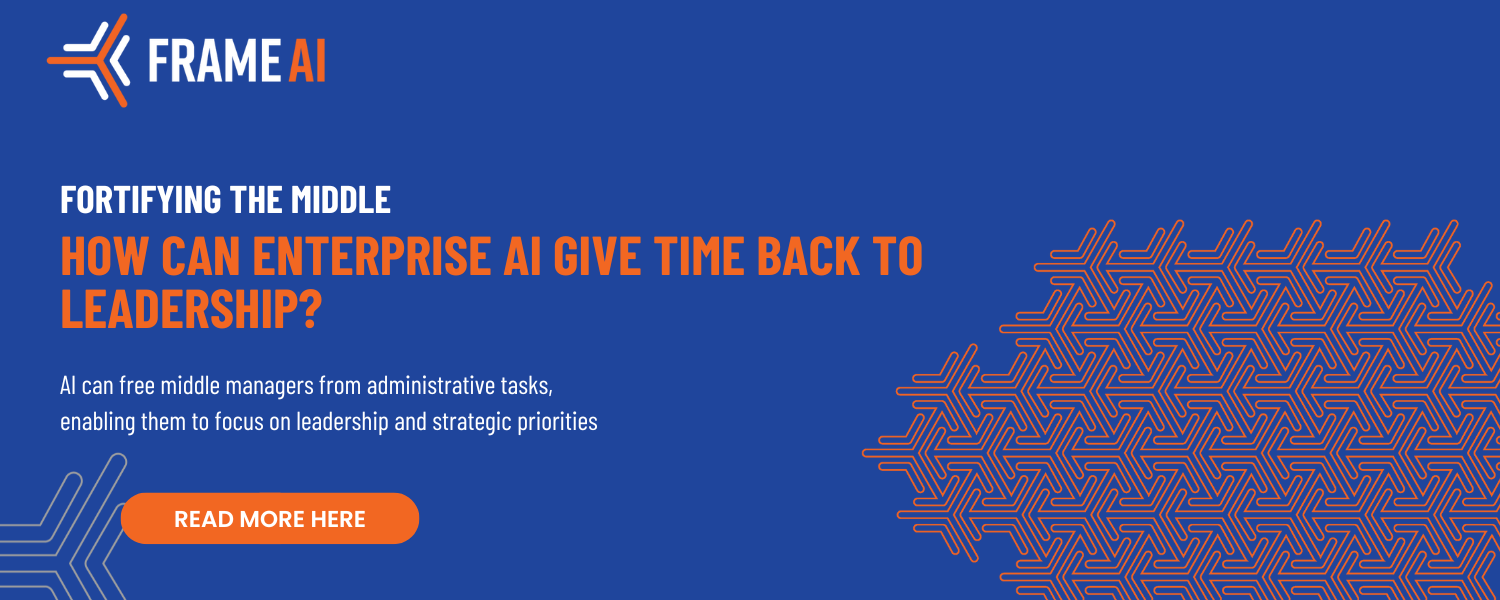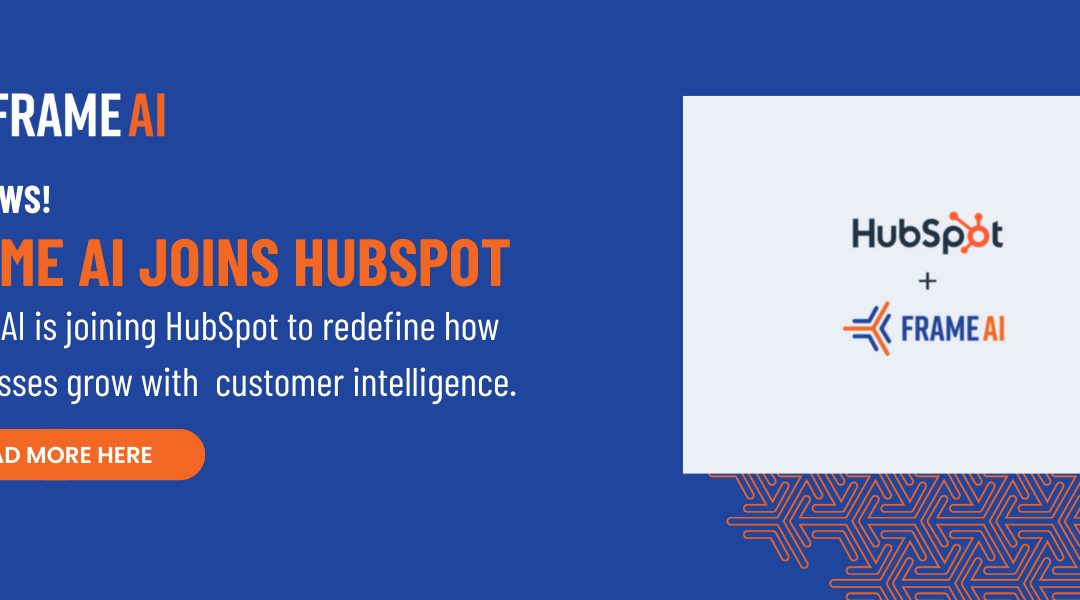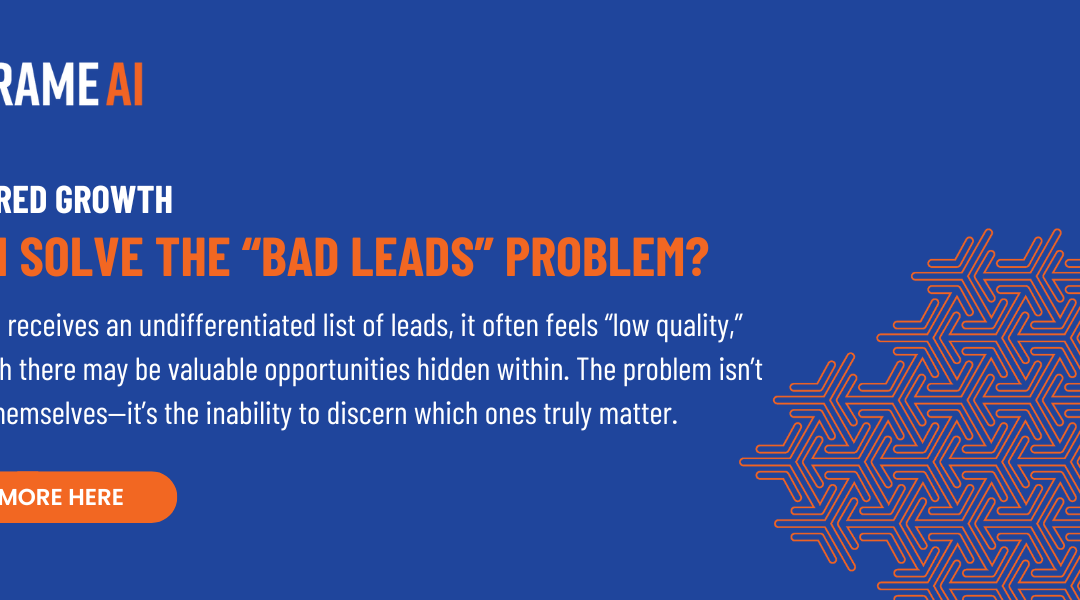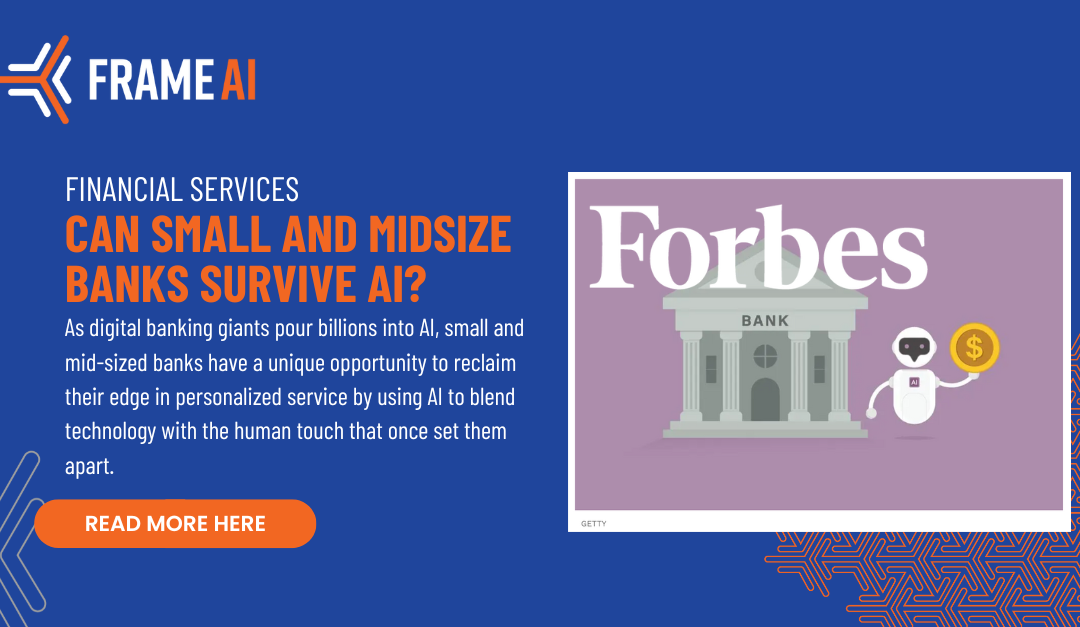Middle managers are the backbone of enterprises. They translate strategy into actionable plans, keep the wheels of day-to-day operations turning, and act as vital connectors across different tiers and teams. Because they operate at this crucial intersection, middle managers often feel the brunt of organizational changes and challenges more acutely than other roles.
In a recent episode of the McKinsey Podcast, talent experts and authors of Power to the Middle: Why Managers Hold the Keys to the Future of Work, Emily Field and Bryan Hancock, discussed the evolving role of middle managers and how AI might ease the time suck of administration.
Field and Hancock report that managers spend half of their time doing administrative tasks and 44% say that organizational bureaucracy gets in the way of doing their work. These challenges have negative implications for both managers and organizations. When middle managers are bogged down by administration, they have less capacity to focus on strategic priorities, such as guiding their teams, driving innovation, and aligning day-to-day operations with the company’s long-term goals. This inefficiency not only hampers their effectiveness but also leads to burnout and decreased job satisfaction.
When managers are unable to dedicate sufficient time to leadership activities, their teams suffer from a lack of direction and support, leading to lower morale and productivity. Ultimately, these issues can cascade across the organization, resulting in missed opportunities, decreased agility, and a weakened competitive position in the market
So, how can organizations set up middle managers for success and where does AI fit in? Specifically, how and where can AI give time back to middle managers so they can focus on getting the most out of their teams?
Complex Jobs Require More Powerful Technologies
As Hancock notes, AI is a general purpose technology, like the internet or electricity. He goes on to say that we’re still in the very early stages of generative AI, and that while there’s lots of belief in the promise, organizations are still figuring out the most impactful use cases.
AI has the potential to revolutionize middle management, but it needs to be applied in ways that truly support the strategic and complex nature of their roles. The issue with many current AI implementations is that they focus primarily on automating simple, repetitive tasks, which, while helpful, don’t address the deeper challenges faced by middle managers. These tools often fail to provide the nuanced insights needed for effective decision-making, or they lack the capacity to streamline the more intricate aspects of managing teams and projects.
For AI to be genuinely transformative, it must go beyond superficial efficiency gains and tackle the core issues that hold middle managers back. This means leveraging AI to analyze vast amounts of unstructured data, generate actionable insights in real-time, and automate complex workflows that are currently draining managerial time and energy. AI should empower managers to focus on their most critical responsibilities—leading their teams, driving strategic initiatives, and making informed decisions that align with the organization’s long-term objectives.
This is where technologies like Frame AI’s STAG (Stream-Trigger Augmented Generation) architecture come into play. Unlike traditional AI tools that require specific inputs or queries to produce results, STAG continuously monitors data streams, proactively surfacing relevant information that managers can use to anticipate challenges and seize opportunities. With AI designed for enterprise complexity, organizations can not only free up their managers from administrative burdens but also enhance their capacity to lead effectively.
“We have used Frame AI to implement maecenas faucibus mollis interdum. Donec ullamcorper nulla non metus auctor fringilla. Nullam quis risus eget urna mollis ornare vel eu leo.
MD Technology, Gitlab
1. Proactive Risk Management
Middle managers are constantly juggling multiple responsibilities, from overseeing team operations to managing client relationships. This leaves little time for the proactive identification and mitigation of risks, which can lead to significant challenges down the line. Traditional risk management approaches often rely on periodic reviews and manual oversight, which are too slow and cumbersome to address the dynamic risks that modern organizations face.
STAG addresses this by continuously analyzing unstructured data from various sources, such as customer feedback, internal communications, and external market signals. It proactively identifies patterns and anomalies that could indicate emerging risks, such as a sudden surge in customer complaints or shifts in product feedback. When STAG detects these early warning signs, it triggers alerts that enable managers to take immediate action—whether that’s reallocating resources, adjusting strategies, or communicating with key stakeholders. This proactive risk management capability allows middle managers to stay ahead of potential issues, reducing the likelihood of crises and ensuring smoother operations. By automating the detection and initial assessment of risks, STAG frees managers to focus on strategic priorities, driving long-term success.
2. Enhancing Team Performance with Real-Time Feedback
The effectiveness of middle managers is closely tied to their ability to manage team performance. However, traditional performance management systems often fall short, relying on infrequent reviews and delayed feedback that fails to address issues as they arise. This reactive approach can result in declining team morale, reduced productivity, and missed opportunities for improvement.
STAG transforms performance management by providing real-time insights into team performance and individual contributions. By continuously analyzing interactions such as customer service exchanges, STAG identifies trends and patterns that signal when a team is excelling or when it might need additional support. For example, if a customer service team is facing challenges with a particular type of inquiry, STAG can highlight this issue immediately, allowing the manager to address it before it affects overall performance. This timely feedback enables managers to intervene promptly, offering the necessary coaching or resources to keep their teams on track. The result is a more agile, responsive management approach that fosters high levels of performance and engagement.
3. Deeper Customer Understanding and Root Cause Analysis
Customer satisfaction is a critical metric for any business, and middle managers play a key role in ensuring that customers have positive experiences. However, understanding the root causes of customer behavior often requires sifting through vast amounts of unstructured data—such as open-ended survey responses, social media comments, and service interaction logs—making it a daunting task for managers already stretched thin.
STAG simplifies this process by automatically analyzing unstructured data to uncover the underlying drivers of customer behavior. It identifies recurring themes and trends, such as common pain points or frequently mentioned issues, and provides managers with detailed insights into what’s driving customer satisfaction or dissatisfaction. For instance, if customers consistently report delays in service, STAG can pinpoint the exact stages in the process where these delays are occurring, enabling managers to address the root cause rather than just the symptoms. By offering a deeper understanding of customer needs and frustrations, STAG empowers managers to implement targeted improvements that enhance customer experiences, leading to increased loyalty and long-term business growth.
Conclusion
By integrating STAG into their operations, organizations can transform the role of middle managers from overwhelmed multitaskers into empowered leaders who drive business success. STAG not only alleviates the pressures of day-to-day management but also equips managers with the insights and tools they need to lead effectively, ensuring that they can focus on what truly matters: guiding their teams, driving strategic initiatives, and delivering exceptional results for the organization.
To learn more about how Frame AI helps organizations accelerate management, request a demo today.




